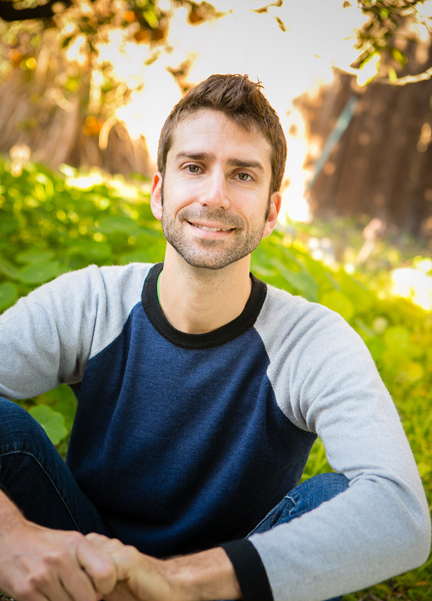
Yoga Month: Sound Mental Health
 One of the hallmarks of the practice of yoga is its ability to combine conscious body movements, intentional breath, and awareness of sensations, thoughts, and emotions. The various techniques utilized in each one of these segments of the practice hone and tone our mindfulness muscle.
One of the hallmarks of the practice of yoga is its ability to combine conscious body movements, intentional breath, and awareness of sensations, thoughts, and emotions. The various techniques utilized in each one of these segments of the practice hone and tone our mindfulness muscle.
When this mindfulness muscle is more robust, we may experience a greater sense of well-being. But how is this actually unfolding? What structures of the brain are impacted? And how can yoga be one of the tools in the journey of sound and vital mental health?
One of the clear effects of yoga is its ability to reduce stress, which, when high, can exasperate states of anxiety and depression. Deep breathing, mindful movements, and a pocket of time at the end of practice to relax and integrate our work are all key contributors. On a physiological level this happens through a reduction in blood cortisol levels, which, when high, is associated with the fight, flight, or freeze response.
Furthermore, yoga seems to increase our “vagal tone,” which is directly correlated to our ability to stay resilient in the face of accumulated stress. The vagus nerve—the largest cranial nerve which starts at the skull and makes contact with our respiratory, digestive, and nervous system—is a major player in regulating bodily functions. High vagal tone means we can move from an excited state to a relaxed state more quickly and with greater ease.
One specific study looked at yoga’s ability to support women with premenstrual stress by up regulating the parasympathetic nervous system. The study concluded that “regular practice of yoga has beneficial effects on both phases of menstrual cycle by bringing parasympathodominance and psychological well-being probably by balancing neuro-endocrinal axis.”
Another area that has ample scientific backing is yoga’s ability to influence our neurotransmitters, which directly impact our mental health. Neurotransmitters are basically chemical messengers that support a wide array of physical and physiological functions like mood, sleep, appetite, and fear.

Yoga supports the brain to pump out more gamma-aminobutyric acid (GABA), a neurotransmitter responsible for helping us chill out and relax. People who suffer from panic disorders and anxiety tend to have less GABA activity in the hippocampus, visual cortex, orbital cortex, and insula.
While other neurotransmitters have been studied more in meditators, it is probable to assume that yoga—especially with a mindfulness focus—is generating similar effects. Serotonin, which helps regulate mood, is lower in people with depression. Mindfulness practices seem to elevate this important chemical messenger naturally.
Norepinephrine is more present in the locus coeruleus region of the brain in people suffering from anxiety. Lower levels, which have been found in meditators, result in lower incidences of apprehension.
Finally, dopamine, which is associated with reward-motivated behavior, was elevated after a practice of deep relaxation reducing the potential for those with social anxiety.
In addition to these specific effects, mindfulness practices have been shown to enhance parts of the brain that help with better emotional regulation, improved learning and memory, increased self-awareness, reduced reactivity, and an increase in our ability to access higher order brain functions for more skillful decision making.
While sound mental health requires us to take inventory and develop skills in various quadrants of our lives (professional passion, community, nutrition, toxin exposure, joy, etc.), yoga and mindfulness can be an important tool to support our long term mental health and overall well-being.
Sources:
-
Kripalu: Why Yoga Works
-
“Association of yoga practice and serum cortisol levels in chronic periodontitis patients with stress-related anxiety and depression” National Center for Biotechnology Information
-
“Meditation and Yoga can Modulate Brain Mechanisms that affect Behavior and Anxiety-A Modern Scientific Perspective” National Center for Biotechnology Information
-
What is Mindfulness?
 Danny Arguetty, M.A., is the mindfulness program manager at the University of Washington, a yoga teacher (and teacher trainer), nutrition/life coach, and a lover of the environment. He is the author of Nourishing the Teacher and The 6 Qualities of Consciousness.
Danny Arguetty, M.A., is the mindfulness program manager at the University of Washington, a yoga teacher (and teacher trainer), nutrition/life coach, and a lover of the environment. He is the author of Nourishing the Teacher and The 6 Qualities of Consciousness.
Passionate about helping people flourish through mindfulness, wellness, and personal self-development, he has over a decade’s worth of experience in group facilitation, one-on-one coaching, and experiential teaching.
Danny has guided workshops throughout the United States, led basic and advanced yoga trainings in the U.S. and India, and spoken at Facebook, Olson Kundig, and Gravity Payments (all in Seattle). He served as adjunct faculty at Williams College, leads a quarterly course on Intro to Mindfulness at UW, and is a faculty member at Kripalu Center for Yoga & Health.